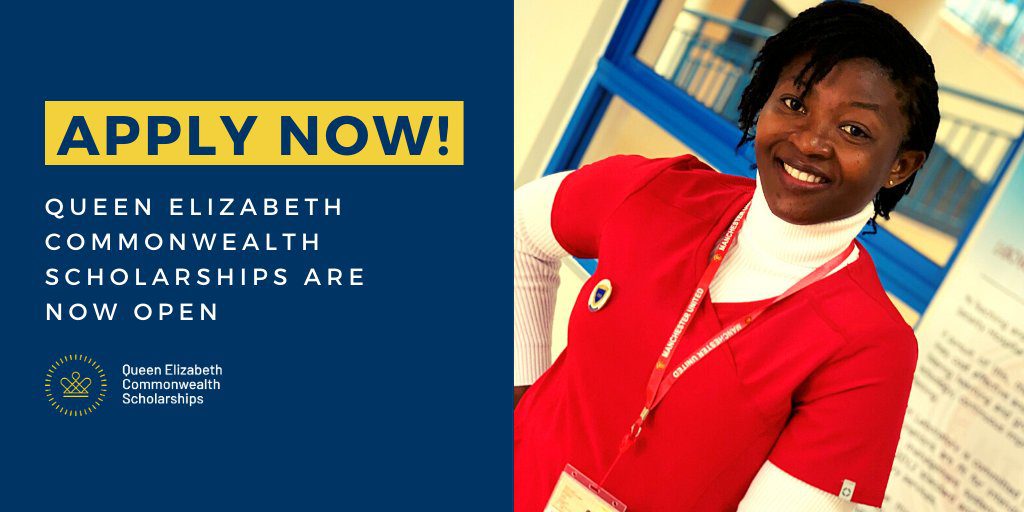The Queen Elizabeth Commonwealth Scholarship is a fully-funded master’s programme awarded to Commonwealth citizens to study at leading universities in low or middle-income Commonwealth countries. India is one of the Commonwealth country members.
Due to Covid-19, this year, the Queen Elizabeth Commonwealth Scholarship will also give scholars a chance to study through distance learning at Fiji National University.

Thus, what more do students get under a Queen Elizabeth Commonwealth Scholarship?
Acquiring new skills, obtaining an international qualification and experiencing life in a completely new environment, are all benefits of this programme.
Students who are massively committed to creating a difference in their communities, broadening their horizons and building lifetime global networks, stand a chance to win this award. If you think you can be a scholar to bring positive change to the world and find solutions to worldwide challenges, here’s what you need to know to apply:
Who can apply for the Queen Elizabeth Commonwealth Scholarship?
If you’re a citizen (or you hold a refugee status) in a Commonwealth country, you are welcome to apply. You must apply for the Queen Elizabeth Commonwealth Scholarship in a country other than your home one.
There is no upper age limit to be eligible for this award but you must have completed your undergraduate degree and as part of the process you’ll be required to provide your final transcript. This award is only for new students and can’t be used to fund a course that’s already begun.
Do I need to take an English language test?
This depends on the university of your choice and their admissions website on whether you require English test results. If English isn’t your first language but all your studies were taught in English, it will depend on your institution as they differ. If you can’t find information on their admissions website, it’s best to contact the university directly.
What does the scholarship cover?
If you’re a successful applicant, the scholarship will cover all tuition fees, living expenses, return economy flights to your host country, an arrival allowance and a research support grant (on request only).
Your allowance, if approved, will be stated in your award letter. You also have the chance to get funding for purposes not covered by the Queen Elizabeth Commonwealth Scholarship but you need to get permission from the committee.
What do I need to know about visas and travel?
Your flights won’t be booked by the Commonwealth Scholarship and Fellowship Plan (CSFP) Unit until you confirm the receipt of your visa to your host country. You also won’t be able to get the reimbursement for flights booked independently so make sure you wait for CSFP Unit to do so.
For the visa process, you’ll need to request support from your host university as different countries have different immigration processes.
Application guide and statements
The closing date to apply for a Queen Elizabeth Commonwealth Scholarship for next year is January 10, 2022. However, before you apply, make sure you review available courses and entry requirements and create a MyACU account as the application is filed online.
You will need to fill in your personal details, academic and employment record, your course at host university details, statements and required documents.
The three main statements can be broken down as below:
Statement 1: Plan of study in 200 to 400 words.
You should answer why you chose to study your course and what you find interesting in your course. Also, don’t forget to include why you chose the institution and the country. That will be very important.
Additionally, include what research you have done for your chosen university and how this course is relevant to your future career plans. You should add how your previous studies and experiences make you stand out for your course.
Statement 2: Development impact and post-study outreach in 300 to 500 words
In this statement, you should share why you are committed to creating change in your community and how you plan to develop your knowledge and skills so you can contribute solutions to global challenges which include the UN Sustainable Development Goals.
This letter needs to include a challenge in your country you did like to tackle, a proposed study, what skills you expect to gain from the Queen Elizabeth Commonwealth Scholarship and how you will use them when you return home.
The last part should be 150 to 200 words describing the UN Sustainable Development Goal you’re most aligned to and how your proposed study will help solve it.
Statement 3: Creating networks in 200 to 400 words.
Networking is essential in the world of today and this is why your last statement needs to explain how you have built relationships through your academic studies, hobbies, work experience and volunteer experience.
You need to describe the way your connections and networks will help you achieve impact with the programme and how you plan to develop these during your studies.
In conclusion, the student must share every detail, qualification and experience, statement of purpose and the view they have in order to bring change in the community. However, big files with your data won’t guarantee you anything. It’s the discretion of the University and the Institution and the jury members. Just be yourself. Good Luck!
Read all the Latest News here. Follow us on Facebook, Twitter, Instagram, and LinkedIn.


















Add comment